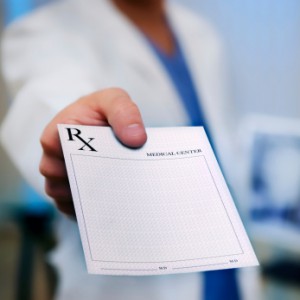Injured by a Generic Drug? You Can’t Sue Over Inadequate Warnings
The Supreme Court has not been very friendly to consumers and employees over the past few years. Its most recent session seems to be a particularly strong example of this pro-business tendency. Between two recent opinions limiting consumer and employee class action lawsuits, and a ruling issued today, consumers seeking redress in the federal courts may have a bumpy road ahead of them.
The Supreme Court has ruled that customers who are injured by taking generic drugs cannot sue for injuries if their sole theory of liability is that the warning label was inadequate.
Under federal law, the makers of generic drugs have to use the same warning labels that appear on their name-brand counterparts. However, makers of brand-name drugs are allowed to change their warning labels without FDA approval, and the Supreme Court has held that those companies can be sued under state tort law. However, it ruled in this case that the makers of generic drugs cannot, because of the doctrine of preemption.
 Under the statutory and case law of most states, products whose ordinary use carries risks that cannot be eliminated without making the product less useful, the product must carry a clear warning label to inform consumers of these risks.
Under the statutory and case law of most states, products whose ordinary use carries risks that cannot be eliminated without making the product less useful, the product must carry a clear warning label to inform consumers of these risks.
However, under the doctrine of “preemption” (a principle laid out in the Constitution stating that federal law overrides contradictory state law), the Supreme Court held that the federal law on the subject overrides the state law, essentially holding that plaintiffs cannot sue generic drug makers for warning defects, either in state or federal court, since the companies are required, by FDA regulations, to carry whatever warning labels go on their name-brand counterparts.
However, pharmacies are allowed to substitute name-brand drugs with generics. And only name-brand drug manufacturers have a duty to place accurate and adequate labels on their products warning of potential side effects. Generic drugs, again, are specifically required to carry the same labels that the name-brand manufacturers use, regardless of their accuracy. So, the plaintiff’s argument, that the generic drug manufacturer had a legal duty to accurately label their drugs (which is true under state law), is specifically contradicted by federal regulations. And because federal laws override contradictory state laws, and federal law specifically absolves generic drug manufacturers of a legal duty of accuracy in labeling (instead imposing a legal duty of “sameness” in labeling), the plaintiffs cannot sue.
As an interpretation of federal law, this is a perfectly logical conclusion. However, it leads to some incredibly illogical results. Under the law, pharmacists are allowed to substitute name-brand drugs with their generic equivalents. So, an injured patient’s right to sue a drug manufacturer for a warning defect could hinge entirely on whether the pharmacist decides to fill a prescription with a brand name drug, or a generic one.
Even Justice Thomas, who wrote the opinion, conceded that this makes little sense (a point that Justice Sotomayor was sure to make in her dissent), but said that this is what current federal law requires, and that only Congress and the FDA can rectify the situation.
Hopefully, Congress sees fit to do so as soon as possible, by passing legislation that specifically allows patients to sue generic drug manufacturers who negligently fail to warn of side effects that they know or reasonably should know of. Of course, the whole purpose of this seemingly-strange law was to make it easier to market inexpensive generic drugs. Once a new drug’s patent expires, anyone can manufacture and market it, usually for a fraction of the price that’s charged for the brand-name version. This, obviously, gives more people access to lifesaving medications.
In order to make this process easier and more affordable, the “duty of sameness” labeling requirement for generics was created. By allowing a manufacturer of generic drugs to duplicate the warning labels of name-brand drugs, these manufacturers are able to bypass the lengthy and expensive clinical trials that went into discovering the risks associated with the drug.
Obviously, creating a right to sue over inadequate warnings on generic drugs would make it more difficult for them to be sold as cheaply as they are now, and doing so will entail a difficult balancing act.
However, a situation where a person’s right to seek compensation for injuries caused by another party is determined by the roll of the dice is unacceptable.


Comments